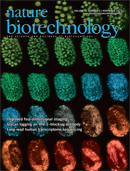 On September 18, former Traversa Therapeutics CEO Hans Petersen went on a shooting spree. One of two people wounded was molecular biologist Steven Dowdy, a professor at University of California San Diego (UCSD) School of Medicine, in La Jolla, and cofounder of Traversa, according to a San Diego police report. Petersen has pled not guilty to charges of attempted murder and awaits trial. Petersen and Dowdy set up Traversa in 2006 to commercialize two promising short-interfering RNA (siRNA) delivery technologies licensed from Dowdy’s UCSD laboratory. In 2010 the board of directors asked Petersen to leave, citing the growing complexity of operations, a decision Petersen blamed on Dowdy, according to the UCSD professor. But Dowdy says he had no vote on the board: “I was not the grand poobah of Traversa.” Petersen’s protracted departure coincided with a period in which the pharma industry shied away from RNAi research (Nat. Biotechnol. 29, 93–94 (2011)). The company’s main delivery technology, a fusion of a protein transduction domain and double-stranded RNA binding domain (PTD-DRBD), capable of chaperoning siRNAs through cell membranes to silence genes, only worked at low concentrations. But at the higher siRNA concentrations necessary for clinical trials, it precipitated, Dowdy says. Traversa developed an improved version by late 2011 and decided to focus on that, returning the license for the second siRNA delivery technology ribonucleic neutrals (RNNs) to UCSD. Even so, Traversa failed to attract Series C funding and in April 2012 filed for bankruptcy. Dowdy’s UCSD laboratory meanwhile made more progress with RNNs. He and ex-Traversa CSO Curt Bradshaw have since launched another San Diego–based startup, Solstice Biologics, to capitalize on that technology. In January 2013 Solstice reported an $18-million Series A funding round. Dowdy is recovering from his gunshot wound and says he is “looking forward to getting back into my laboratory and doing science.”
On September 18, former Traversa Therapeutics CEO Hans Petersen went on a shooting spree. One of two people wounded was molecular biologist Steven Dowdy, a professor at University of California San Diego (UCSD) School of Medicine, in La Jolla, and cofounder of Traversa, according to a San Diego police report. Petersen has pled not guilty to charges of attempted murder and awaits trial. Petersen and Dowdy set up Traversa in 2006 to commercialize two promising short-interfering RNA (siRNA) delivery technologies licensed from Dowdy’s UCSD laboratory. In 2010 the board of directors asked Petersen to leave, citing the growing complexity of operations, a decision Petersen blamed on Dowdy, according to the UCSD professor. But Dowdy says he had no vote on the board: “I was not the grand poobah of Traversa.” Petersen’s protracted departure coincided with a period in which the pharma industry shied away from RNAi research (Nat. Biotechnol. 29, 93–94 (2011)). The company’s main delivery technology, a fusion of a protein transduction domain and double-stranded RNA binding domain (PTD-DRBD), capable of chaperoning siRNAs through cell membranes to silence genes, only worked at low concentrations. But at the higher siRNA concentrations necessary for clinical trials, it precipitated, Dowdy says. Traversa developed an improved version by late 2011 and decided to focus on that, returning the license for the second siRNA delivery technology ribonucleic neutrals (RNNs) to UCSD. Even so, Traversa failed to attract Series C funding and in April 2012 filed for bankruptcy. Dowdy’s UCSD laboratory meanwhile made more progress with RNNs. He and ex-Traversa CSO Curt Bradshaw have since launched another San Diego–based startup, Solstice Biologics, to capitalize on that technology. In January 2013 Solstice reported an $18-million Series A funding round. Dowdy is recovering from his gunshot wound and says he is “looking forward to getting back into my laboratory and doing science.”